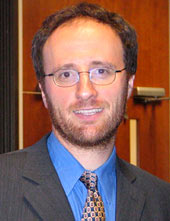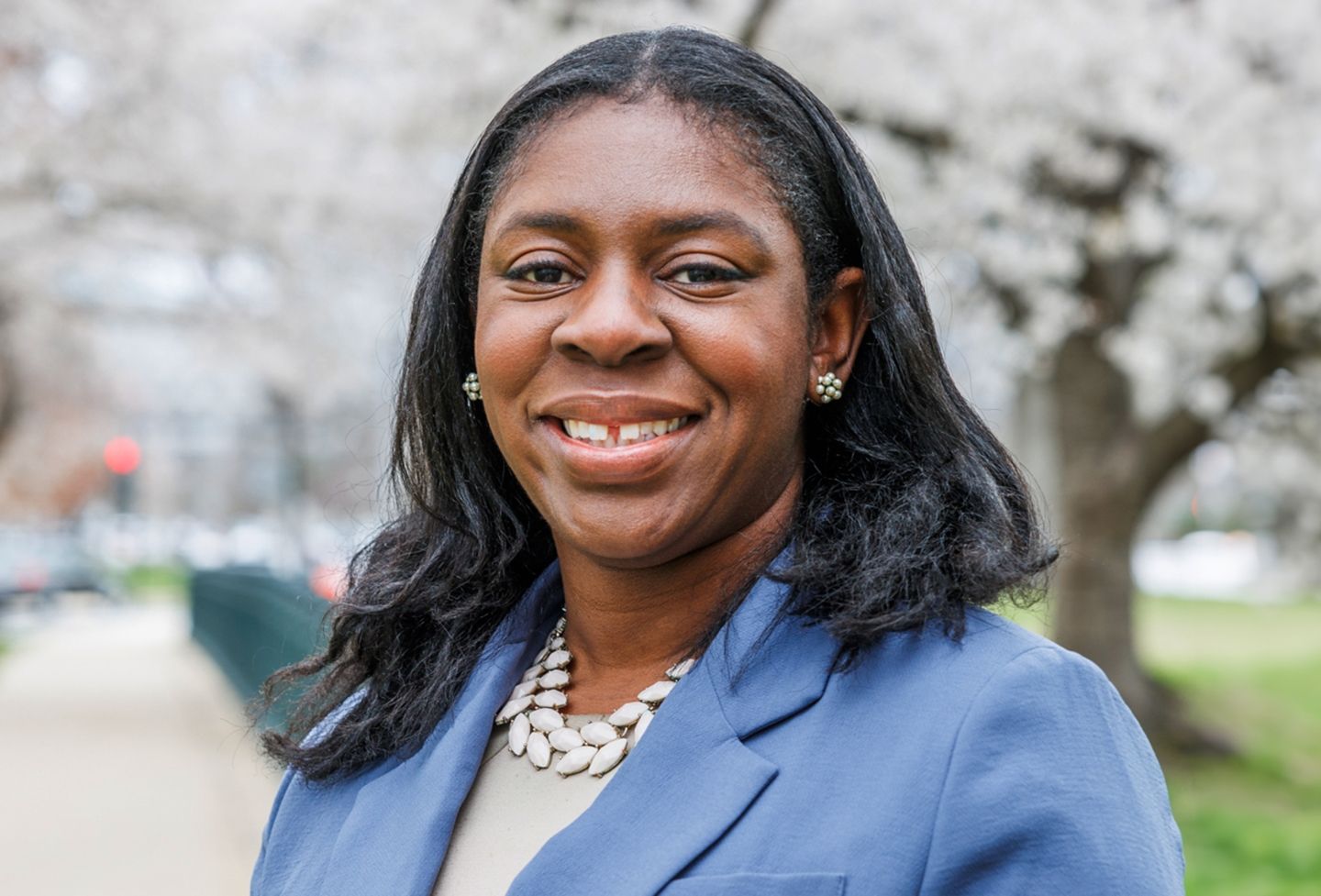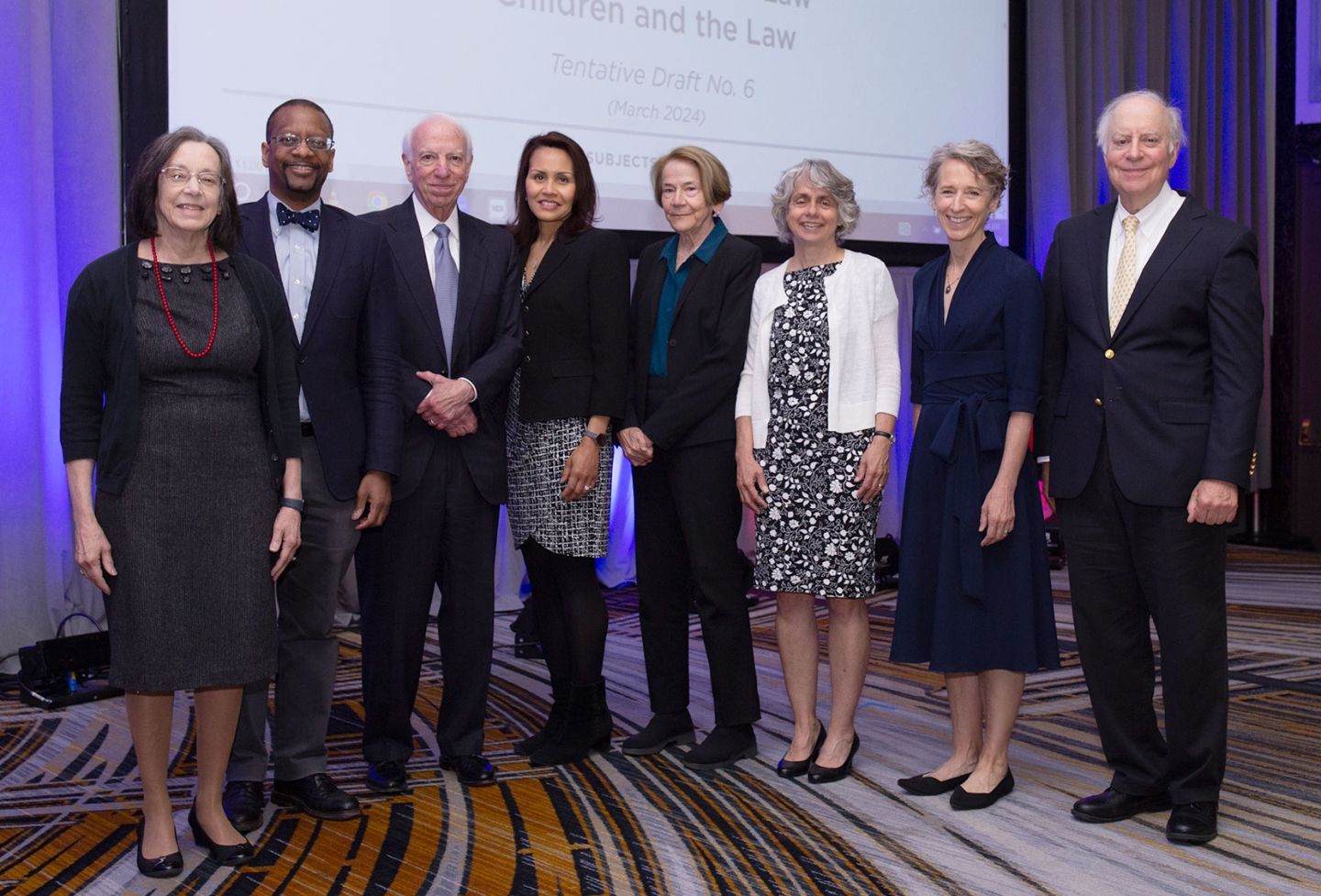Gene Databases, Organ Transplants Raise Ethical Questions, Siegal Says

Health initiatives that require participation from the public, such as organ transplants or research that requires broad access to patients' medical data or even DNA, raise ethical problems but should strive to operate for a nation's greater good of long-term health, said Gil Siegal of the Haifa Schools of Medicine and Law. At a U.Va. Forum on Health Law and Policy April 22, Siegal discussed ways in which governments and private companies are employing such initiatives and how they are trying to increase voluntary participation.
The debate offers a new twist on an old story: tension between collective goals and benefits and individual autonomy, or as Siegal posed the question, "Is the publicmore than the aggregate of the individuals?"
Siegal said the government of Iceland is cooperating with a private company, deCode genetics, to create databases of medical records and genetic information to study prevalent diseases and develop more potent and efficient drugs. The collected information could allow researchers to match genetic variables to environmental effects, lifestyle, nutrition, and metabolism.
"It will enable individualized medicine as opposed to today's medicine," Siegal said.
The medical records database operates under an opt-out program, in which citizens who do not want their records included in the study must choose to opt out of the program. The gene database is an opt-in program, where participants choose to volunteer their DNA.
With Iceland's small population of 280,000, birth records going back twelve generations, and limited immigration, researchers think the medical database could offer a wealth of information. Only about 10 percent have opted out of the medical records program since its inception and 15,000 have volunteered their DNA so far. Iceland's government contracted with deCode genetics, an American company, which in turn contracted a Swiss pharmaceutical company to exploit the Icelandic genetic database. "Does the government have the proxy to make such a contract?" Siegal asked.
Other nations, such as Sweden, Canada, and the United Kingdom are overseeing similar programs. In Iceland, leaders passed the Iceland Database Act outlining rules governing such databases. The Act requires medical files and genetic samples to remain exclusively in Iceland, the database must meet security standards mandated by a commission, the company must bear all costs of processing and maintaining the database, and deCode's researchers must reside in Iceland to keep talent local. Furthermore, the Ministry of Health must possess a regularly updated copy of the database, and the government must have access to statistical data from the database for use in health reports, planning, and policymaking. A special committee also acts as a supervisory party. For reasons of confidentiality, technical feasibility, and to avoid legal liability, information gleaned from the databases is not shared with individual participants.
Such collective action encourages solidarity, Siegal said, and promotes the ideal of equality and empowered citizenship-called "new genetic citizenship" by some. On the other hand, such collective action may engender loss of individualism, liberty, and privacy. Some fear the results could encourage profiling or stigmatizing of certain groups. As it stands, private companies may be profiting from collective information gathered from the public, and they perhaps should share benefits of such projects with participants, Siegal said. He added that there's some evidence participants in Iceland were caught up in the drive for the national database mainly because they thought, "we're going to find the Viking genes"-raising concerns of the resurgence of nationalism.
What might explain the public, ethical, and legal attitudes toward such programs? Siegal said the United States and Europe define the principles of bioethics differently. The United States is focused mainly on autonomy, with beneficence, justice, and non-malfeasance coming second, while Europe is concerned with human dignity, solidarity, and precaution, with solidarity often given primacy. "It's a true cultural difference," he said, pointing to the extraordinary caution Europe effaced over genetically modified crops.
Such differences also play out in whether countries design an opt-in (associated with autonomy), or opt-out (associated with solidarity) system for organ donors. The United States' opt-in system allows people to choose to be donors, but over 6,000 people on the organ donor waiting list die each year. The monetary costs of the opt-in system also are high: $14 billion is spent on dialysis alone, according to 2001 data, up from $250 million in 1979. Furthermore, many people who need transplants don't even get on the list because they have no chance of getting one. Despite a 90 percent national approval rate for organ donation, only 15 percent of Americans sign a donor card, which may not withstand family wishes anyway. For those who have not signed cards, families are given the final say, resulting in "too many refusals." The United Kingdom and Israel also have an opt-in system, but Belgium, France, Singapore, and Finland all presume citizens consent to donate organs unless citizens opt out of the program.
Siegal said doctors are afraid that the public will see them as looting organs if consent is presumed. In one case in the United Kingdom, a hospital was harvesting organs of deceased children without consent. Soon after news broke about the practice, the national rate of donation plummeted from 50 to 20 percent.
"What's wrong with opt-out?" Siegal asked the audience. Law professor Richard Bonnie responded, "There's too much chance that people's organs would be taken without actual individual consideration, and where people might have refused if they had thought about it."
Siegal said people also want the right not to make a choice. "By forcing me to opt out, you're forcing me to have an opinion," he said. But, "looking at the opt-in system, it's failing," he added. "Are we glorifying ethical concepts and principles … at the expense of someone dying?"
Siegal wondered whether the bigger evil was not taking organs from someone who did consent, because their family objects, or taking organs from someone who might have objected but did not. He suggested that the values of solidarity coupled with reciprocity should create the impetus for a change-nondonors are currently eligible to receive donations themselves.
Opt-out and reciprocity structures depend on a certain amount of coercion, he admitted. "It is coercive in the sense that you have to make an opinion."
However, Siegal suggested, "if something is important, they will opt out." He used the example of the national Do-Not-Call Registry, in which 55 million Americans signed up to have telemarketers' calls blocked.
Bonnie questioned the analogy, noting, "With the Do-Not-Call Registry, people are faced daily with the need to make a choice, so we can be sure that they will opt out if they really don't want the calls. With organ donation, there's still a significant risk people will not focus on it." Siegal conditioned his proposal on ample opportunities for people to opt out, thereby exercising their autonomy.
Siegal said in Iceland the deCode deliberations saturated the media, with parliamentary and public debates, 700 newspaper articles, 100 radio and TV shows, polls, and referendums contributing to the spreading of information.
Still, Siegal noted, when joining such a population database, in one sense you surrender information that affects other people. If 500 individuals of the Cherokee nation volunteered their DNA, it could reveal what genetically makes the Cherokees distinct, giving up their group's rights. "We're all geared on autonomy and the rights of individuals, but this analysis is inadequate to deal with this issue," he said.
Questions also hover about consent-when people give their consent to have someone study their medical records or genes, to what are they consenting? Many studies use "blanket consent," because there may be uses for the information not yet envisioned. This presents problems if the information is eventually used for non-medical research, or to create a crime database, for example. Private companies could start with more frivolous research to make a profit when the public instead wants to study diabetes, Siegal explained. In debates in Israel, some were concerned such collective information could be used to target certain groups for bioterrorism.
For these reasons, national control of such databases may appear desirable to some, he said. It would preserve freedom of access to HMOs, scientists, the government, and patients, and preserve the public investment. It may also support independent researchers and enhance public awareness of the beneficial results from such research. But many scholars, including Siegal, support having such databases operate as a public charity to which the government will have access only for public-health reasons.
A genetic database "for me is a vehicle for social change," Siegal said. It offers a chance to create a different path for the concept of autonomy, and the ability to reshape public attitudes, emphasizing mutual interdependency, he said.
As the session opened to questions, law professor Thomas Hafemeister pointed out that an improved opt-in plan might solve the organ shortage without shifting to an opt-out system. "There's no incentive for people to address these issues early," he said.
Siegal pointed out that "in the opt-out systems, there's no waiting list [for organs]."
The American Medical Association has recommended requiring Americans to make a choice about whether to donate or not when they renew their driver's licenses, file income tax forms, or perform some other task mandated by the state.
Siegal said he preferred the question to center on "what's the right thing to do"-not create a neutral policy that overlooks the fact that people are dying.
Hafemeister noted that presumed consent historically has been abused in the United States. "We've done a lot of things to the mentally ill," he said, explaining Americans' reluctance to offer doctors and researchers a free pass.
Siegal said most objections over collecting medical information in Iceland concerned the question of who had control over the data. Such data, for example, could identify the difference between races-not an issue raised in Europe, but "a major problem" in the United States. Siegal noted that whites donate organs twice as much as African-American donors, and African-Americans are more likely to die in circumstances where their organs can be donated. "The distrust in the African-American community is substantial," he said, "as is the fear of genetic discrimination. These concerns must be addressed in order to strengthen social cohesion offered by collective actions such as organ and DNA donation."
Founded in 1819, the University of Virginia School of Law is the second-oldest continuously operating law school in the nation. Consistently ranked among the top law schools, Virginia is a world-renowned training ground for distinguished lawyers and public servants, instilling in them a commitment to leadership, integrity and community service.


